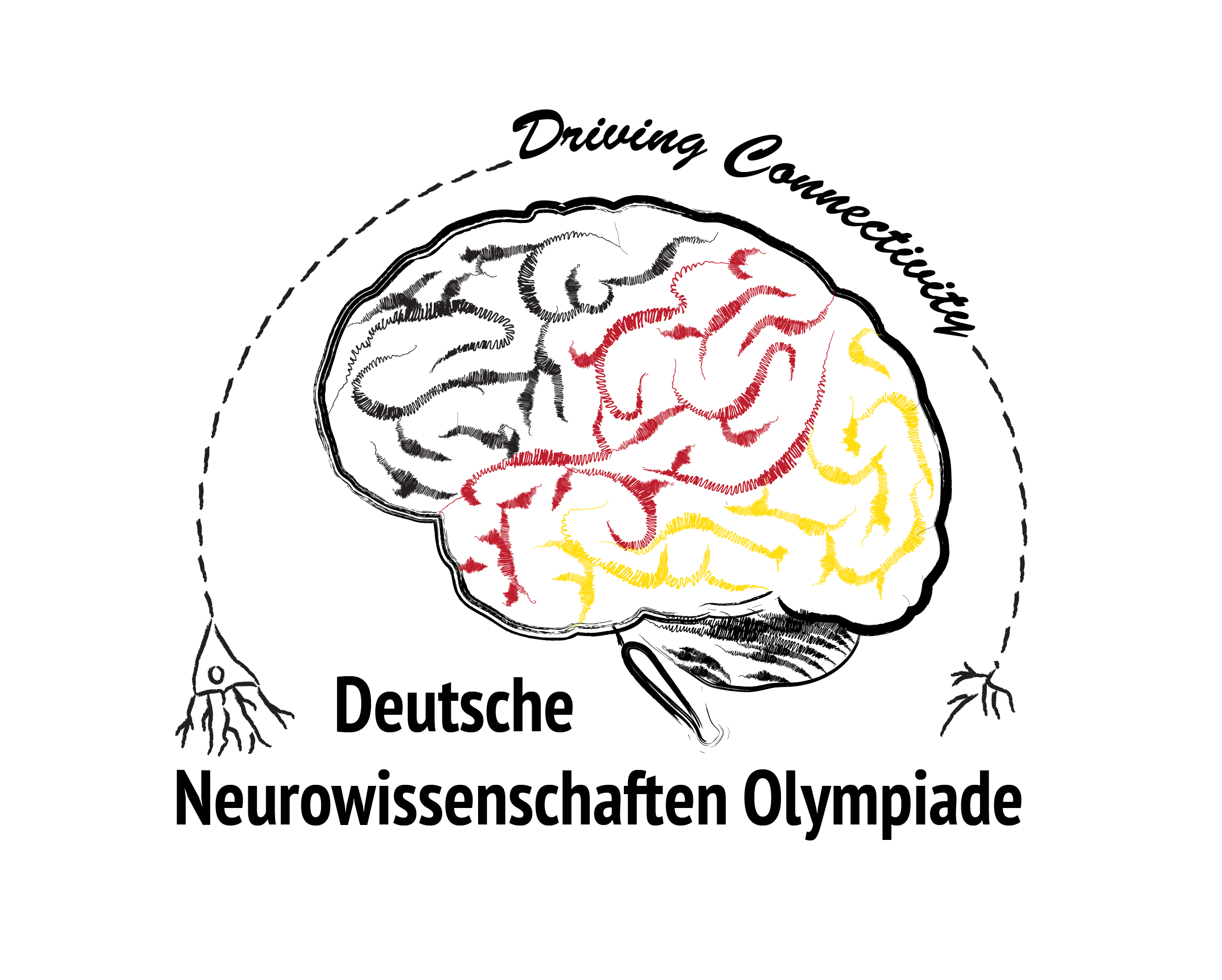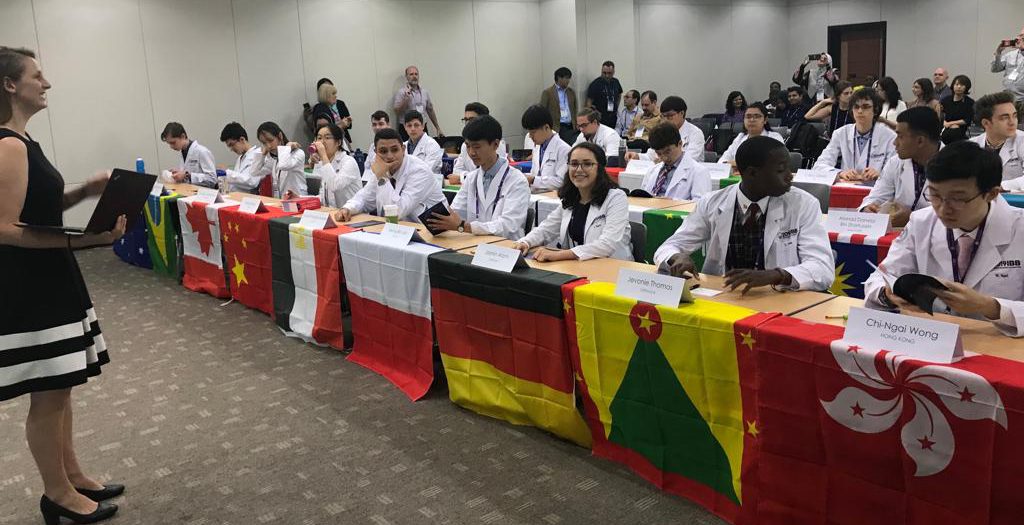Jasmin, how was your time at the International Brain Bee 2019?
Oh, this is simple: It has been one of the best experiences in my life. Not only did I meet so many amazing, like-minded students from all over the world, but I also had the chance to catch a glimpse into the exciting world of science. We visited the IBRO congress and I was able to listen to some engaging lectures, talk to scientists at the exhibition, and look at fascinating posters. I now know more than ever that a career in science – neuroscience in particular – is the right choice for me. The competition itself was exciting as well. It was a great feeling to be able to apply the knowledge about the brain that I have gathered for the last months. However, the one thing that made my time in Korea truly extraordinary is the friendships that were formed. Although we spent only four days together, it feels like we’ve known each other for years. I will treasure all the memories of us playing games, laughing and just talking forever. I know I have found friends for life.
What is your general impression of the 2019 IBB?
The 2019 IBB was something I have been looking forward to since I won the national competition. I was excited to meet the other students, experience Korea, and learn something about the brain and science in general. My expectations have not only been fulfilled, but exceeded. Every memory I have of the IBB is extraordinary.
How did you find the tests?
The tests were just the level you would expect from an international competition. There were tough questions that I did not know the answer to, but they motivated me to read and learn more about that topic afterwards. I especially enjoyed patient diagnosis because of its interactive features. What made neuroanatomy and neurohistology a great experience was the presence of real human brains and tissue. After answering a question I would spend the rest of the time looking at the brains in awe. The live judging session was very suspenseful which honestly made it such an exciting experience. Surprisingly, I did not feel at all nervous and stressed. The atmosphere was very relaxed throughout the whole competition.
Do you have any special moments you would like to mention?
The great thing about my time in Daegu was that every moment was special, especially the ones I shared with my new friends. Particularly the souvenir exchange in the beginning, where each student brought something from their country to give it to every student, was inspiring. I now have 27 objects from 27 different countries in my room that will always remind me of that person! Another special moment was during the last evening when everyone was leaving a short message for every student in a small notebook. Not only was sitting together, talking, listening to music, picking out super cool science stickers, and writing heartfelt messages great, but reading all the messages in my buddy book will always remind me of that amazing time.
Did you make new friends in Daegu?
I have made so many new friends during that time! Even though we only knew each other for four days, in the end it felt like we have been friends for years. Because we spent every minute together, we could really get to know each other. Additionally, we all had similar interests. I’m not only talking about neuroscience, but many of us shared other interests as well – let it be the taste in music, movies or our favorite hobby. We’re staying in contact via social media and promised to see each other again soon. The friends I made during the IBB are friends for life, no doubt.
Can you tell us some aspects you especially liked about the 2019 IBB?
I really did like every single thing about the 2019 IBB: all the other students, having amazing roommates, the interesting questions on the tests, the bus rides, the fancy dinners, all the tasty food, the IBRO congress experience, staying up late to play games, exchanging souvenirs, getting to know a new country and of course the great organizing team. I loved it all – except for saying goodbye.
Did you learn new things while you were in Daegu?
I learned so much when I was in Daegu. And I’m not only talking about neuroscience. Although I found out a lot of new information about it by talking to the other students and attending a lecture at the IBRO congress, I also learned about 27 countries from all around the world. I have gained a better understanding of the world and all its different cultures. Also, I now know how to write my name in Korean.
What is your impression of South Korea?
South Korea is an impressive country! My family and I spent a couple of days enjoying Seoul before heading to the competition. I was able to see and learn about some of Korea’s history and culture by visiting palaces and just walking through Seoul and admiring its beauty. Plus, the food is really interesting and exciting to try. I’m glad I had the chance to experience such a unique and different country.
Do you think the IBB and DNO experience in general will help you for your future?
I have no doubt that both the DNO and the IBB will be beneficial for my future. I know now better than ever that I want to spend my life working with and researching the nervous system. This whole experience has helped me realize the complexity of it all and how fascinating and exciting it is. Participating in the DNO is what really got me into the topic even though I had some ideas about neuroscience before. Additionally, I was able to attend the IBRO congress where I could talk to scientists about their research and career, which generally showed me what a life in the scientific world could be like.
If you were to give a message to the future DNO and potential IBB participants, what would that be?
You are about to enter a very exciting time of your life. Participating in the DNO has turned out to be one of the best decisions in my life. Learning about neuroscience and sharing that excitement with other people is a great thing. Use every opportunity at the DNO and maybe even IBB to talk to people and make friends because that is the most important thing you will take away from the competition. Also, once you really get interested in the brain, studying and competing will be so much fun. Make the best out of it!
Author: Nathalie Tisch, Team Leader DNO-Heidelberg
About the Author: Nathalie Tisch successfully defended her PhD in 2019 at the University of Heidelberg and is currently working at the UMM in Mannheim. While she mainly focused on the subject of Neuroscience during her master studies, she has entered into a more interdisciplinary field for her PhD work. Nathalie joined DNO in 2015. Since 2016, she’s a team leader in Heidelberg. Upon 2020, she will support DNO as Press & Communication executive while starting her first Post-Doc position in Israel.

